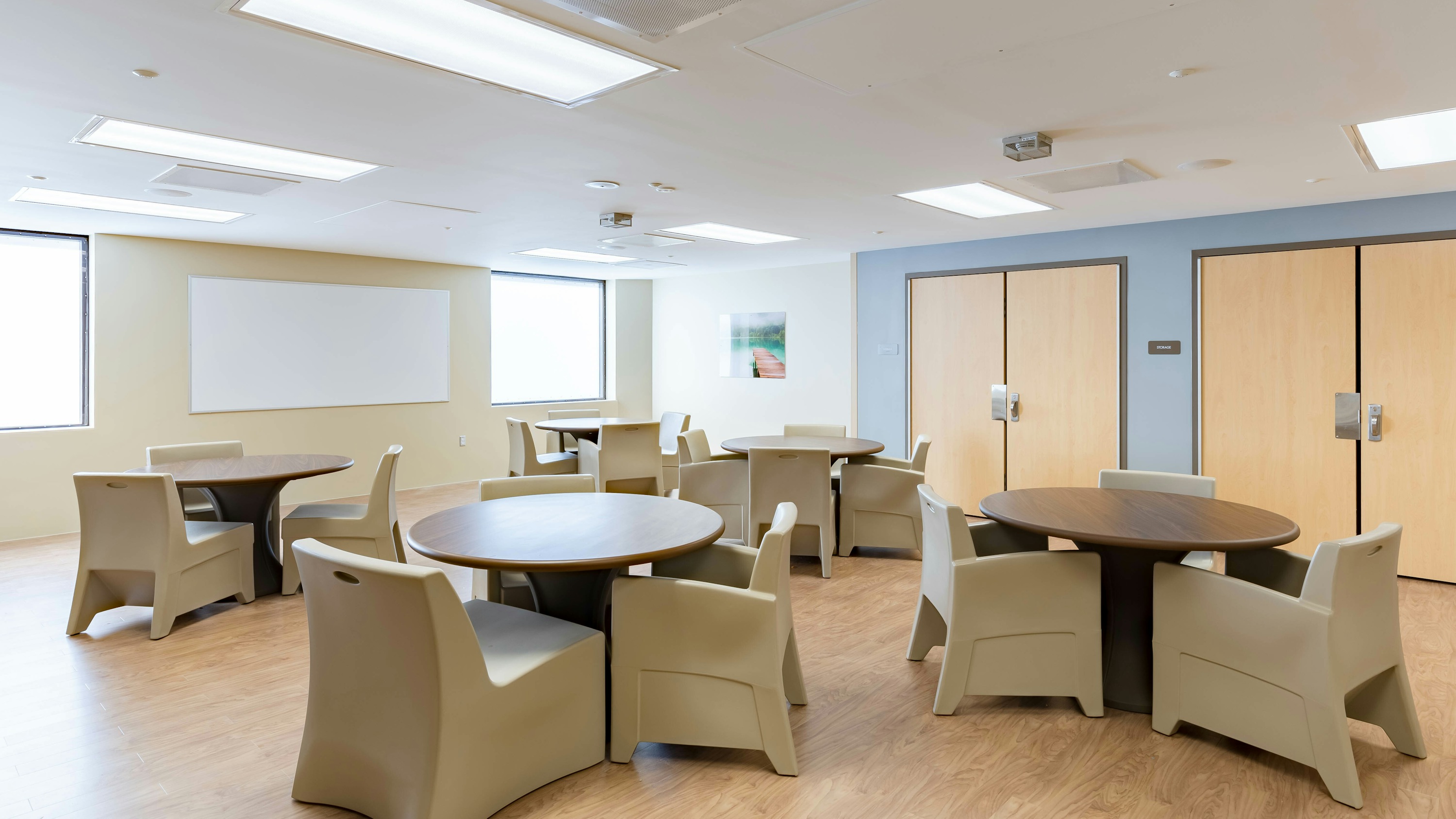
“It is exciting that the industry is not just thinking about innovative ways to meet the unique needs of community members with mental health and addiction conditions - they're implementing them.”
Helen J Strike, President
Regina Hospital and River Falls Area Hospital (within Allina Health)
The most effective tools we have to treat those experiencing mental health crises are ones we already possess: empathy, kindness, and a mindset of treating people the way we would want to be treated. This is the essence of the EmPATH model (short for emergency psychiatric assessment, treatment, and healing unit), which creates a safe space designed to calm and stabilize patients in behavioral health crises.
In honor of Mental Health Awareness Month, we’re sharing insights on the importance of equipping emergency departments across the nation with EmPATH units to address the needs of individuals experiencing mental health crises.
Current state of emergency departments and mental health
It is vital to first understand current design limitations of emergency departments (EDs). EDs are regularly overcrowded due to the lack of psychiatric emergency resources, impacting patient occupancy and overall patient treatment in crisis. An Annals of Emergency Medicine study found that mental health emergency department visits for pediatric patients increased by 56.5% from 2009 to 2015. Often, those who are entering EDs for mental health treatment experience longer wait times and less specialized treatment options.
Because of the limited standard of care, those experiencing mental health emergencies may not receive optimal treatment. According to Helen Strike, President at Regina Hospital and River Falls Area Hospital and Wold client, care in traditional emergency rooms needs to change to meet the needs of the “whole person” and must be delivered in environments that support each individual’s unique needs.
Helen also noted that EDs have traditionally been prepared for worst-case scenarios for mental health and addiction patients, with makeshift confinement rooms that look more like prisons than healing environments. EmPATH units are a positive and necessary addition to the care model. Creating tailored spaces to address the needs of those experiencing a behavioral health crisis promotes healing and treatment effectiveness.
Why it’s time to implement EmPATH units
Today, healthcare building designers are gaining a greater understanding of mental and behavioral health patient needs in both outpatient and inpatient settings. To mitigate current challenges, it is vital to consider implementing EmPATH units in emergency departments.
EmPATH units are typically designed for acute psychiatric patients. Patients are able to receive an assessment and evaluation in a calming environment from mental health professionals. Separated from the standard emergency department, EmPATH unit patients receive attentive and comforting treatment for their short-term behavioral health needs. According to Vituity, 75% of EmPATH unit patients avoid an inpatient psychiatric admission altogether and are safely discharged within 24 hours.
Helen Strike notes that “creating a care environment that is welcoming, de-escalating and warm – with safety and privacy – helps to show mental health and addiction patients that they are not alone in seeking treatment.” By providing a separate area specifically for psychiatric needs, staff members in both departments can focus on individual patient needs. As experts in behavioral and mental health design, Wold’s architectural and engineering team can assist in the planning and implementation of EmPATH units across the country.
If you need additional information about how we can assist with EmPATH units, please contact our team at Wold Architects and Engineers by calling 1-888-254-6789 or emailing info@woldae.com. Our multidisciplinary team of professionals would welcome the opportunity to help assess your needs and develop the best solutions to meet them.